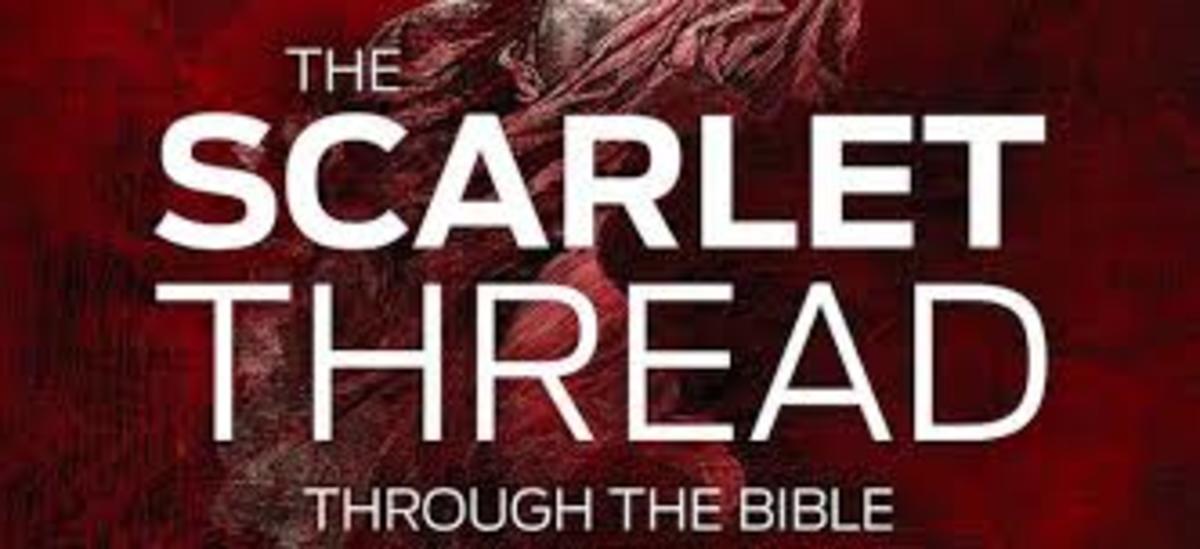Is Jesus Who He Claims to Be?
Poll
Who is Jesus really?

Overview
It’s easy to think of Christianity as a deep, dark hole that requires you to jump in without being able to see the bottom. None of us has ever seen the God of the Bible with our eyes. None of us were witnesses to the resurrection. Some people simply don't want to be accountable to a creator and have no desire to comply with that creator's wishes. "If God exists then He just needs to stay out of my way." Others just want all of their questions answered before they're willing to sign on intellectually. There's also a group of us who have been treated badly by those in the church and want nothing to do with the God those people are selling. And then there are those who are bought in but just have doubts sometimes. Some of the stories seem outlandish when you compare them to our own life experiences. How do we really know what the truth is? Who is Jesus Christ, and is there evidence to support the Christian faith?
The Future Predicted
Jesus showed up at a time when 400 years had gone by with no prophets and no word from God. God had historically given messages to the Jews through prophets such as Isaiah, Jeremiah, and Elijah. During those years of silence, the Jews had continued to wait and hope for the promised Messiah (the chosen one). But what were they looking for exactly and why?
Hundreds of years before Jesus arrived on the scene, these prophets were running around pointing to His future arrival. This is a huge thing, if you stop and think about it! Over a hundred predictions about Jesus life and ministry were written by several different authors who never met each other. All of them were fulfilled in one man hundreds of years after they were written. Isaiah in particular, who was writing around 700 years before Jesus arrived, had a lot to say.
“All right, then, the Lord himself will choose the sign. Look! The virgin will conceive a child! She will give birth to a son and will call him Immanuel—‘God is with us’.” (Isaiah 7:14) NLT
At the time, I'm sure someone thought, "God will somehow be born to a virgin?" I'm sure it made no sense at all. It wouldn't have made sense to us either. And yet, that's exactly what the gospel writers say happened. Isaiah painted the clearest picture of what Jesus' mission would be: to be the sacrifice for our sins.
“...My servant grew up in the Lord’s presence like a tender green shoot, sprouting from a root in dry and sterile ground. There was nothing beautiful or majestic about his appearance, nothing to attract us to him. He was despised and rejected—a man of sorrows, acquainted with bitterest grief. We turned our backs on him and looked the other way when he went by. He was despised, and we did not care. Yet it was our weaknesses he carried; it was our sorrows that weighed him down. And we thought his troubles were a punishment from God for his own sins! But he was wounded and crushed for our sins. He was beaten that we might have peace. He was whipped, and we were healed! All of us have strayed away like sheep. We have left God’s paths to follow our own. Yet the Lord laid on him the guilt and sins of us all.” (Isaiah 53:1-6) NLT
Isaiah also said that the Messiah would be of the line of David but also be called "Mighty God" and "Everlasting Father". This detail fits perfectly into the story of Jesus but at the time I'm sure they wondered how God Himself could be a descendent of David! Also notice how the Messiah will live and reign forever. Clearly Isaiah is not talking about a run of the mill human being here.
"For a child is born to us, a son is given to us. The government will rest on his shoulders. And he will be called: Wonderful Counselor, Mighty God, Everlasting Father, Prince of Peace. His government and its peace will never end. He will rule with fairness and justice from the throne of his ancestor David for all eternity. The passionate commitment of the LORD of Heaven's Armies will make this happen!" (Isaiah 9:6-7)
It was actually the prophet Micah who gave us His birth location. Even Herod knew about this one (see Matthew 2:3-6) and asked his advisors where the Messiah would be born. Of course they knew exactly where it would be. The Jews of this day knew that the Messiah had been promised and were actively looking for him.
"But you, O Bethlehem Ephrathah, are only a small village in Judah. Yet a ruler of Israel will come from you, one whose origins are from the distant past. … And he will be the source of our peace.” (Micah 5:2) NLT
Jeremiah even predicted the new covenant from God that Jesus would bring with Him. Jesus was expected to completely change how we relate to God. And it turns out he did exactly that.
"'The day is coming,' says the LORD, 'when I will make a new covenant with the people of Israel and Judah. This covenant will not be like the one I made with their ancestors when I took them by the hand and brought them out of the land of Egypt. They broke that covenant, though I loved them as a husband loves his wife,' says the LORD.
'But this is the new covenant I will make with the people of Israel on that day,' says the LORD. 'I will put my instructions deep within them, and I will write them on their hearts. I will be their God, and they will be my people. And they will not need to teach their neighbors, nor will they need to teach their relatives, saying, 'You should know the LORD.' For everyone, from the least to the greatest, will know me already,' says the LORD. 'And I will forgive their wickedness, and I will never again remember their sins.'" (Jeremiah 31:31-34)
All of these passages were written hundreds of years before Jesus was born. If we look at each passage individually, it doesn't mean a lot. But if we look at them collectively as a tapestry, it clearly points to Jesus as the Messiah. The fact that these writings existed hundreds of years before he arrived is clear evidence that God himself wanted to pave the way for his arrival and make it clear to us who it was that had sent Him. God was pointing at Jesus saying "Here he is. Follow Him." Who could accurately predict the future other than God? For followers of Jesus, this information alone should help resolve our nagging doubts. For those who have walked away from Christianity, I hope this gives you pause enough to stop and reconsider your decision. Certainly there's no reason to be hasty about this with so much hanging in the balance of your decision. Your decision is really up to you and I have no right to judge you based on that. But, we should all have the opportunity to make as informed a decision as possible. Rest assured that your heavenly Father wants that as well.
Historical Context of the New Testament
The writings of the new testament have over 5600 copies (or manuscripts), which is far more than any other ancient writing. We have 7 copies of Plato's writings, 49 copies of those of Aristotle. The closest to the Bible is the 643 copies of Homer's Iliad--almost 12% of the total copies of the New Testament. We also have a fragment of John's gospel that dates back to 125 A.D., which historians believe is 29 years after the original writing. Biblical scholars agree almost unanimously that the new testament books were all written before the close of the first century. This would mean that the last books were written no later than 70 years after the death and resurrection of Jesus (Jesus died in 30 A.D.). This is very important because it means that:
- The New Testament books were written and distributed at a time when plenty of eye witnesses were alive to dispute their validity.
- The New Testament books could not have been altered or enhanced (too many ancient manuscripts for that).
Outside of the Bible, there is clear evidence that Jesus lived and was crucified by the Romans. Consider the excerpt below from Cornelius Tacitus, a well known historian of ancient Rome.
"Consequently, to get rid of the report, Nero fastened the guilt and inflicted the most exquisite tortures on a class hated for their abominations, called Christians by the populace. Christus, from whom the name had its origin, suffered the extreme penalty during the reign of Tiberius at the hands of one of our procurators, Pontius Pilatus, and a most mischievous superstition, thus checked for the moment, again broke out not only in Judaea, the first source of the evil, but even in Rome, where all things hideous and shameful from every part of the world find their centre and become popular. Accordingly, an arrest was first made of all who pleaded guilty; then, upon their information, an immense multitude was convicted, not so much of the crime of firing the city, as of hatred against mankind. Mockery of every sort was added to their deaths. Covered with the skins of beasts, they were torn by dogs and perished, or were nailed to crosses, or were doomed to the flames and burnt, to serve as a nightly illumination, when daylight had expired. Nero offered his gardens for the spectacle, and was exhibiting a show in the circus, while he mingled with the people in the dress of a charioteer or stood aloft on a car. Hence, even for criminals who deserved extreme and exemplary punishment, there arose a feeling of compassion; for it was not, as it seemed, for the public good, but to glut one man's cruelty, that they were being destroyed."
The mischievous superstition Taticus is talking about is the widespread belief that Jesus had risen from the dead. He even calls these Christians an "immense multitude." Many other secular writings corroborate the story of Jesus' crucifixion. See the link below for more details.
http://www.westarkchurchofchrist.org/library/extrabiblical.htm
Jesus message and teachings really should have died along with him. If He had simply died and stayed buried, there would have been no reason for a movement to get started. There would have been no reason for his disciples (who fled when he was taken prisoner by the Romans) to return later and be martyred. These men went to their deaths preaching a gospel that they never benefited from in this life. They were imprisoned, beaten, killed... According to Paul, hundreds of people witnessed a resurrected Jesus all at the same time. The resurrection of Christ started a revolution that ultimately made Rome the capitol for Catholicism across the world. Christianity spread all across the world and continues to thrive today. And it wasn't because of the teachings of Jesus. It was because people saw him walking around alive after they had watched him die.








